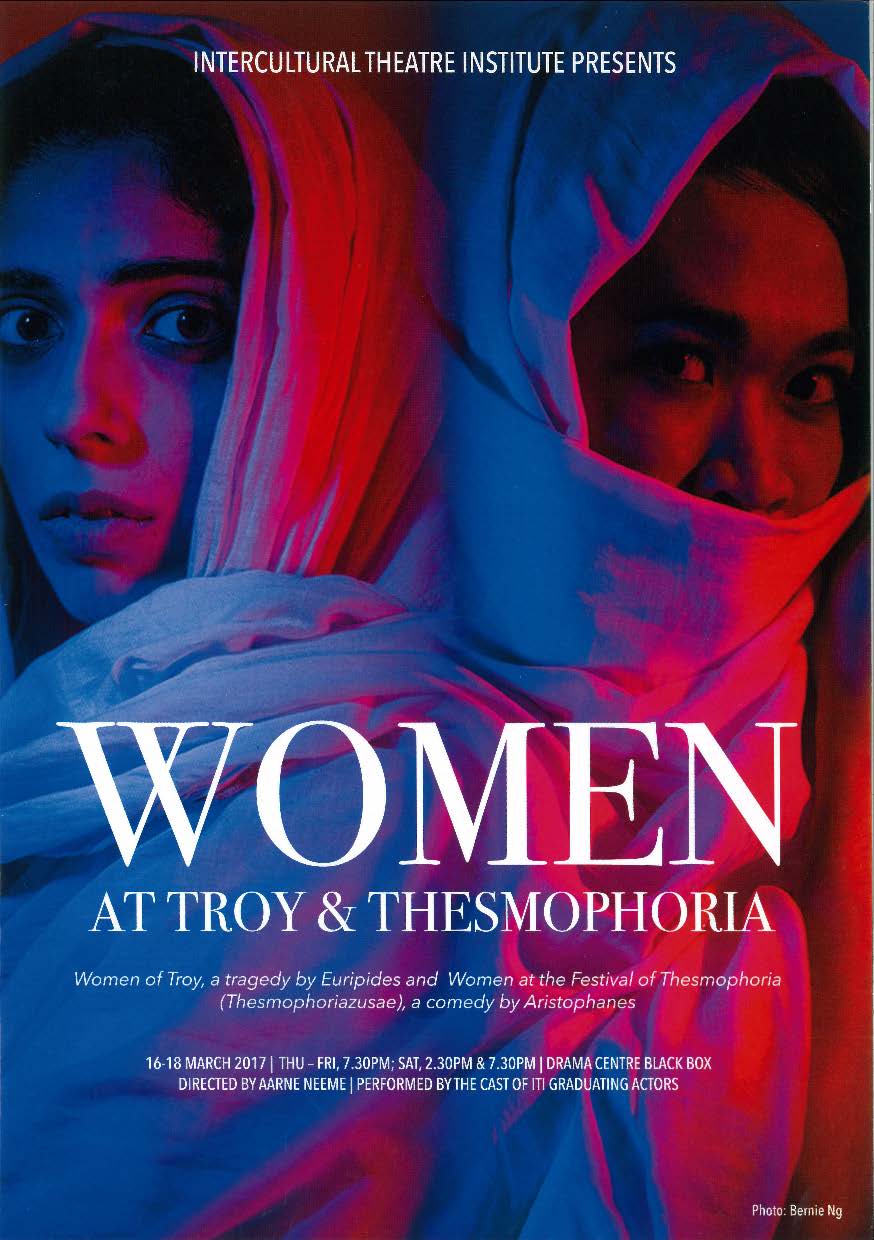Women at Troy
The morning after. The Greeks have won the Trojan War. The men are dead, the city is sacked and a terrible new dawn, as slaves and concubines, is the fate of the surviving Trojan women.
Euripides’ third part of a tragedy trilogy is a bleak commentary on the harsh inhumanity of the Peloponnesian War that was reshaping the Greek world of his time.
A familiar order upturned, faiths questioned and individuals deeply impacted, Euripides’ anti-war classic gives agency to feminine and alternative perspectives rarely recorded in the history of power struggles.
Fittingly, it remains as insightful for the turbulent times today.
Women at the Thesmophoria Festival
Someone wants Euripides dead. Actually, a lot of people do.
His crime? Insulting the women-folk. So what does the Greek tragedian do? Put a father-in-law in drag, a madcap discovery scheme in place and Aristophanes’ travesty of his playwright peer’s life falls into place as Thesmophoriazusae - also known as Women at the Festival of Thesmophoria.
One of the 11 surviving plays of brilliant comic poet, Aristophanes, Thesmophoriazusae does more than entertain ancient and contemporary theatre-goers. It remains one of the sharpest parodies of classical Athenian society that throws light on the glaring gender stereotyping and inequality that exists.
More than 2,000 years later since this witty work was penned, we continue to fight to right that disparity.
